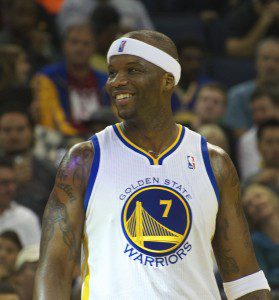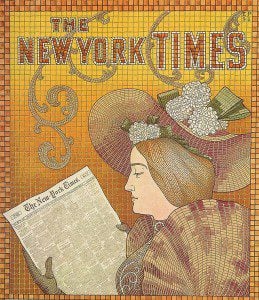 I found corroboration for a view I’ve argued for years in a New York Times Magazine piece on basketball player Shane Battier. Entitled “The No-Stats All-Star” and written by Moneyball‘s Michael Lewis, the article details how a maverick GM has gained insight into basketball players using untraditional statistics. Here’s a snapshot of the argument from the article:
I found corroboration for a view I’ve argued for years in a New York Times Magazine piece on basketball player Shane Battier. Entitled “The No-Stats All-Star” and written by Moneyball‘s Michael Lewis, the article details how a maverick GM has gained insight into basketball players using untraditional statistics. Here’s a snapshot of the argument from the article:
“The year after Battier joined the Grizzlies, the team’s general manager was fired and the N.B.A. legend Jerry West, a k a the Logo because his silhouette is the official emblem of the N.B.A., took over the team. “From the minute Jerry West got there he was trying to trade me,” Battier says. If West didn’t have any takers, it was in part because Battier seemed limited: most of the other players on the court, and some of the players on the bench, too, were more obviously gifted than he is. “He’s, at best, a marginal N.B.A. athlete,” Morey says.”
So here’s the thing: the guy’s a marginal athlete, supposedly. Look at what happens to the teams he plays for, though:
“The Grizzlies went from 23-59 in Battier’s rookie year to 50-32 in his third year, when they made the N.B.A. playoffs, as they did in each of his final three seasons with the team. Before the 2006-7 season, Battier was traded to the Houston Rockets, who had just finished 34-48. In his first season with the Rockets, they finished 52-30, and then, last year, went 55-27 — including one stretch of 22 wins in a row. Only the 1971-2 Los Angeles Lakers have won more games consecutively in the N.B.A. And because of injuries, the Rockets played 11 of those 22 games without their two acknowledged stars, Tracy McGrady and Yao Ming, on the court at the same time; the Rockets player who spent the most time actually playing for the Rockets during the streak was Shane Battier.”
What is Battier’s effect on his team? Not much–just the difference between mediocrity and excellence:
“This year Battier, recovering from off-season surgery to remove bone spurs from an ankle, has played in just over half of the Rockets’ games. That has only highlighted his importance. “This year,” Morey says, “we have been a championship team with him and a bubble playoff team without him.” Here we have a basketball mystery: a player is widely regarded inside the N.B.A. as, at best, a replaceable cog in a machine driven by superstars. And yet every team he has ever played on has acquired some magical ability to win.”
Here’s the hilarious thing about this article’s insight. It stares us in the face. Instead of emphasizing stats like “points scored,” it urges us to take a more organic approach to basketball evaluation, to judge players by their effect on the team, not simply their individual statistic totals. This sounds like a brilliant idea, and in fact it is because no one does it, but in reality it’s so basic it makes you want to cry.
I have a theory. It’s pretty simple. It’s this: the world is filled with bad coaches who make their decisions based on stupid factors, like who can score the most points for a team. Just think about that for a minute. Is the sole measure of a player, let’s say a basketball player, how many points he scores? Is there not a whole side of the game called “defense” that he must also play? Could the quality of his defense he plays, then, factor in significantly to his overall value, such that if, for example, he gets outscored by his defender in the game, he’s not really as valuable a player as originally thought?
The sporting world, from my armchair perspective, is rife is stupid coaching that fails to take into account the most basic realities of athletics. People are so easily seduced by the glamorous aspects of sport that they overlook the small things, which are often the difference between winning and losing.
This is, I think, a reality that shows us that the fall affects every part of life. It affects theology and philosophy, yes, but it also affects sports and playtime. It creates massive injustice in systems and causes people to shortchange those who may justly deserve a shot. As Lewis has showed in Moneyball, it causes talent scouts to look more at a player’s physique than his actual skill set. That is a travesty, and it’s one that has effects on real people.
So what? What’s the big deal? Well, ultimately, this isn’t that big of a deal. But as the article shows, the world is bound to stupidity. Watch the NBA draft every year–there will be a number of seven footers drafted. Most of them won’t amount to anything. Meanwhile, a number of scrappy, undersized players will go undrafted and eventually claw their way onto rosters. This is a sign of injustice. It shows us that, despite the very poor history of many seven-footers in basketball, people are blind to the fact that height and impressive strength does not equal talent or effectiveness.
Injustice and stupidity are everywhere. They’re also hard to take. I’m glad that a few people out there are pushing back against this reality, hard though the case may be to make.











